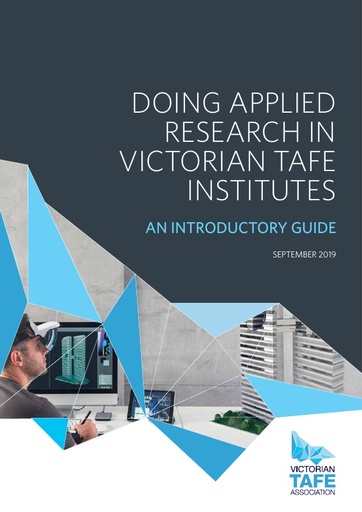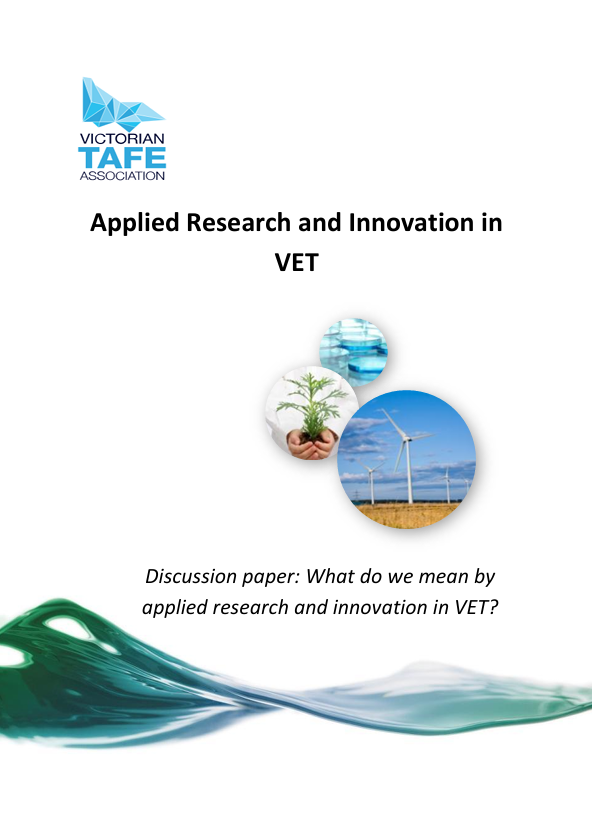Applied research allows TAFE providers to extend the impact of their industry contacts, energy, discipline knowledge and training know-how. It is activated when a TAFE industry client – large, medium, small, micro or startup – identifies a problem or promising idea and seeks TAFE’s participation in responding to it.
Applied research concentrates on technical challenges, business process bottlenecks and service delivery inefficiencies. It may also be concerned with designing high quality training programs that overcome such problems, including examining what constitutes best practice in teaching and learning. The focus of applied research is the challenge, the bottleneck, the inefficiency, or the idea in a business setting.
Applied research can be a particularly valuable service to startups and to small and medium sized businesses. Businesses of this size often confront problems that need solutions in a shorter time than a detailed, long term research program can provide. Smaller businesses rarely have the financial resources to invest in long term research and rarely have the staffing resources or capability to oversee a research program.
TAFE knows how to work with business of all sizes and all stages of development. Applying that sound understanding to collaborative applied research problem solving and idea development is an essential pathway for successful applied research.
Some TAFE teachers are already active in applied research. Sometimes it goes under other names, like prototyping, or tinkering, or applied commonsense. The great opportunity for TAFE is to grow applied research expertise across the sector and to share it for the benefit of our students and the industries we serve.
Applied research harnesses the skills and knowledge of TAFE teachers to devise solutions in collaboration with an industry client. The benefit for TAFE students is becoming active participants in resolving a live problem in their industry of study. This scenario means they can apply what they already know and can do, develop new skills, make a difference. It’s a scenario that fosters engagement, boosts learning outcomes and lifts career opportunities.

This guide synthesises information about research design, methodologies, techniques and standards into a roadmap that contains eight features of applied research.

This discussion paper provides background for discussions on how applied research is best defined in VET contexts.


Acknowledgement of Country
We acknowledge all First Peoples of the land on which we live, work and play – and celebrate their enduring knowledge and connections to Country. We pay our respects to Elders past and present.